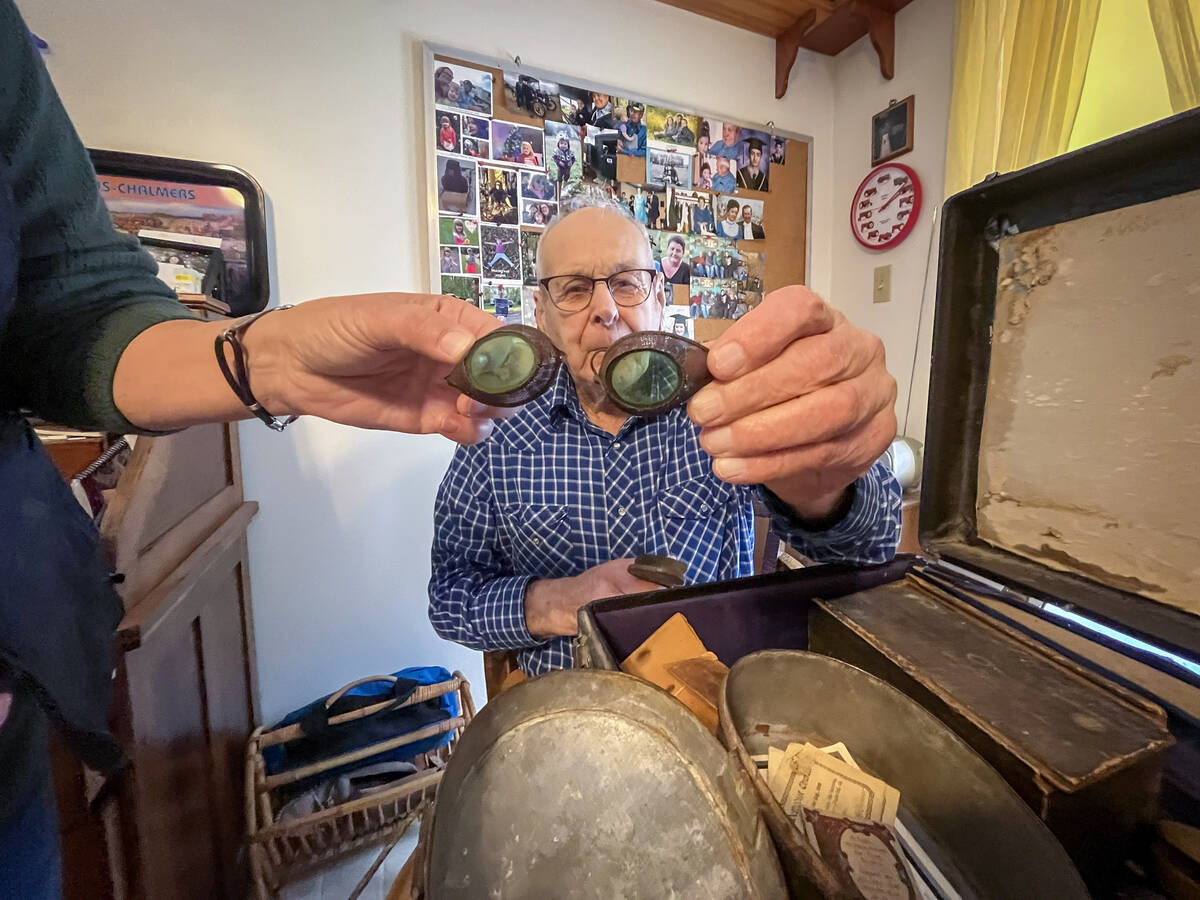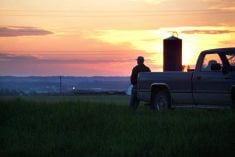The 2015 Dollars and Sense study by Farm Management Canada is still among the most comprehensive surveys to look at which farm practices in Canada increase a farm’s business success and by how much.
Here are the practices. Which is the best sign that you’re firing on all cylinders?
Read Also

The why and how of preserving farm family history
Part two of a series explaining why and how to preserve farm family history.
- You have a written business plan.
- You work with advisors.
- You have a formal budget.
- You maintain performance records.
- You have a risk management plan.
- You are committed to skills development.
Having read this article’s headline, you may have already sussed out that the correct answer is skills development. But it certainly did come as a surprise to the original survey team.
If you think about it, though, it shouldn’t have. At least, that’s the view of Dick Wittman, an ag consultant from northern Idaho. He says the finding actually aligns with what we see every day.
“In most progressive farm operations,” Wittman says, “people at all stages of management are actively engaged in learning.” They have a genuine thirst for education and for continuous development, and it makes them better prepared for whatever comes up.
[RELATED] New school: The business concept that reshaped the Meunier farm
While some people may think they are done learning when they have finished their schooling, and that all they will need are some updates to keep fresh, Wittman says this is short-sighted. With 20 years’ experience as an instructor in The Executive Program for Agricultural Producers (TEPAP) in Austin, Texas, he sees that many new graduates are strong in production skills but have had only “cursory exposure” to essential skills such as how to do a budget, fill out a balance sheet or write a job description.
Wittman says all farmers should ask themselves what they plan to do in the next year to improve their skills.
This question has two sides: 1) how are you going to improve your ability to do your current job; and 2) how are you going to build skills to take on added responsibilities and more diverse roles?
These questions could be the basis of a learning plan which should be in place for every team member on every farm, continues Wittman. Yet in his experience, this learning or self-development plan is often lacking, especially when family is involved.
The failure, he says, is tied to the fact that so few farms have a formalized performance evaluation process in place.
[RELATED] Making a smart choice
However, there is change afoot. “More professional farms are adopting this practice,” Wittman says, and they’re find that it’s true. Formal evaluations lead to more and better education plans.
Chilliwack, B.C. psychologist and performance management consultant Pam Paquet agrees that evaluations are often missing in family businesses, and that this is bad news for skills development on the farm. There’s little sense of direction, she says. “Goals aren’t set; you just roll along.”
Unfortunately, if priorities aren’t identified, they don’t get achieved.
It also results in a lack of understanding about the kinds of dreams that the family farm may want to pursue, and how they can take concrete steps toward them.
In the vacuum, assumptions pop up, like that assumption that the next generation will want to work on the farm and take over, that they don’t need any formal education to do so, and that when they do take over, they won’t make any changes to the business that can create family conflict.
In contrast, by setting short-term (in next three months) and long-term (in the next year) goals, Paquet tells farmers “you will be striving to learn, improve and adapt in the direction you want to go.”
Even during the busy seasons, she suggests trying to carve out an hour a week if you can to work on personal goals.
Once you do, you’ll find that a lot of labels come up. These include education plans, learning plans, professional development plans, betterment plans, and career path and career plans.
Don’t get lost in them, though. Whatever your plan is called and what it encompasses can vary depending on who is initiating the process.
On some farms, says Winnipeg HR consultant Michelle Painchaud, the development plan may simply mean having to attend some annual farm conferences.
These are often focused heavily on production technology, which can be important. But they’re rarely enough on their own for everyone.
On the other end of the spectrum, Painchaud says an education plan can be the result of discussions between manager and employee and entail a three-to-five-year career path that could include formal instruction but also mentorship, webinars, job shadowing, peer groups and more.
These plans are more robust and they are also more motivational for the entire team, she says.
Sometimes the learning plan also includes personal development and health-and-wellness components in addition to their focus on career development, continues Painchaud. “These unique plans become very personal and, thus, are much more motivating and successful,” she says.
When done well, Painchaud says development plans can be important tools for employee recruiting and retention. “Younger employees are hungry for development. It’s unlike any other generation I’ve worked with. When a company helps them build their education plan, it gives them hope and a clearer path about their possible future career.”
Paquet agrees these plans are much more powerful when they are employee-driven and there is employee buy-in.
Erin Deline, director of engagement with Truly Green Farms in Chatham-Kent in Ontario’s southwest, has seen a shift during her more than 20 years of experience working in employee engagement from HR to senior management.
About seven years ago she made a switch to a “people first” management philosophy that involves supporting and advocating for staff.
Deline explains “it’s less about employees doing great work and more about employees feeling great about their work. The more supported employees feel around development — education, coaching and mentoring — the more motivated they remain over time. When we step away from the traditional practices and have more meaningful dialogue, we can engage the employee in a new way.”
Development plans are “a critical piece of how we achieve high-performing teams and how we attract, retain and engage our employees,” adds Deline. “The development plan gives purpose, direction, understanding and clarity for their role in the success of this company.”
“It’s a new world,” says Deline.
While older generations need support for “change management,” in her experience, millennials “need more frequent touch points” that tell them they are doing well and moving in the right direction. Yearly goals are created through one-on-one meetings and are reviewed on a monthly or quarterly basis.
Paquet agrees. She says traditionally the education plan was tied to the annual review but millennials want continuous feedback and appreciation so quarterly reviews are more effective.
Whatever form the education plan takes, Farm Management Canada executive director Heather Watson says an education plan needs to be purposeful. It should include the “what” and also the “how,” for both hard and soft skills.
But farmers do need to appreciate that it take does work to identify the skills and areas in need of improvement. “We don’t know what we don’t know,” says Wittman who developed the Farm Management Proficiency Test (see link below in ‘Resources’) to help people identify where to focus their efforts. “It’s a good starting point for a professional development plan.”
Similarly, Larry Martin, program lead for the Canadian Total Excellence in Agricultural Management (CTEAM) program, finds participants are often surprised by which parts of the program they find most helpful.
Martin describes the program as a “mini-MBA” for producers and finds that while most participants enter the program mostly in order to get better at interpreting their financial statements, they also end up seeing the “non-number stuff” HR management has come to see as transformative.
Resources
- Growing Your Farm Profits: Planning for Business Success (OMAFRA) is a free online assessment tool that helps you identify best practices in farm management and gauge your current skills and practices against what’s considered top-of-the-line practices.
- Farm Credit Canada has helpful skills checklists. The first identifies roles and responsibilities on the farm. The second then focuses on knowledge gaps and training for those roles and responsibilities.
- Check out training programs like the National Farm Leadership Program and Canadian Total Excellence in Agricultural Management (CTEAM) Program.
- Farm Management Proficiency Test developed by TEPAP instructor Dick Wittman.
















